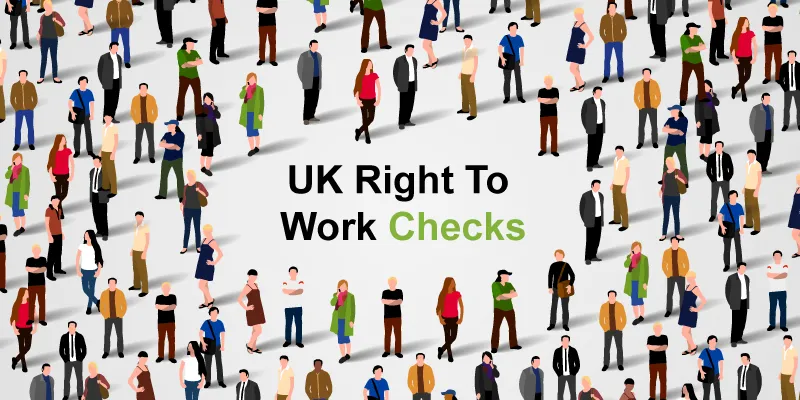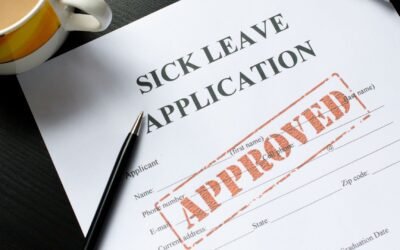Skilled Worker Visas – what rules are changing?
The Government has announced plans to cut net migration numbers into the UK. Several changes are set to be introduced from spring 2024 that employers need to be aware of when employing, or in some cases continuing to employ, foreign nationals.
Background
The Government has announced a package of proposals designed to cut net migration numbers into the UK, to halt what the Home Secretary, James Cleverly, has said is a “…drastic rise in our work visa routes…” as net migration is “…far too high”. These plans are designed to “…crack down on those who seek to take advantage of our hospitality”.
According to the Government’s calculations, 300,000 people who came to the UK in 2022 would not have been able to do so under the plans it has now proposed. In response to concerns that this would leave the UK without access to a valuable pool of potential workers, the Government is prioritising growing the domestic workforce through the Back to Work Plan, designed to provide employment-focused support that will help people stay healthy, get off benefits and move into work.
Visa changes
First, there are plans to increase the annual salary required to receive a UK skilled worker visa from £26,200 to £38,700. This is to stop immigration from, according to the home secretary, undercutting the salary of British workers. However, those coming on the health and care visa route will be exempted from the increase to the salary threshold for skilled worker visas.
The Government will also increase the minimum income required for British citizens and those settled in the UK who want their family members to join them, which Mr Cleverly has said is to ensure that people only bring dependants whom they can support financially. Initially, the Government announced that they would raise the minimum income for family visas to the same threshold as the minimum salary threshold for skilled workers (this would have meant an increase to £38,700 from £18,000). However, they have since announced that the intention is to raise the minimum income for family visas incrementally, in stages, “to give predictability to families”. In Spring 2024, therefore, the threshold will increase to £29,000, which is the 25th percentile of earnings for jobs at the skill level of the Regulated Qualifications Framework (RQF3). The Home Office intends to increase to the 40th percentile (currently £34,500) and then to the 50th percentile (currently £38,700) at a date to be set in the future.
Dependants will also be prevented, from January 2024, from joining international students in the UK unless they are on postgraduate courses designated as a research programme. The health and care visa rules will also be tightened up by preventing overseas care workers from bringing their dependants to the UK. In addition, care firms in England must be regulated by the Care Quality Commission (CQC) in order for them to sponsor visas, which is hoped to crack down on bogus care firms sponsoring individuals with no intention (or even means) to provide them with work.
Finally, in relation to visa changes, the Government will end the 20% going rate salary discount for shortage occupations and replace the Shortage Occupation List with a new Immigration Salary List, which will retain a general threshold discount.
In response to these proposals, Chief Executive Officer of Care England, Professor Martin Green, said: “If the Government now wants to move away from international recruitment as the solution to fixing the social care workforce crisis, it must act swiftly and invest in improving the pay and conditions to drive domestic recruitment.”
Illegal working penalties
In the biggest change to civil penalties since 2014, fines are to be more than tripled for employers who allow illegal migrants to work for them. Announced during Suella Braverman’s time as home secretary, the penalty for employers, last increased in 2014, will be raised to up to £45,000 per illegal worker for a first breach from £15,000 and up to £60,000 for repeat breaches from £20,000. A consultation will also be opened in the future on options to strengthen action against licensed businesses that are employing illegal workers.
Employers should already be checking the eligibility of anyone they employ. If the individual has a time-limited right-to-work entitlement, as is the case with many types of Visa, follow-up checks will be needed to ensure this is renewed.
There are several ways to check right-to-work eligibility, which are not changing, including via a manual check of original documentation and a Home Office online checking system. Below, we outline what these are.
Carrying out right-to-work checks
Right to work checks should always be completed before employing someone new, regardless of their country of origin. Follow-up checks may also be necessary during employment. If completed correctly, employers will establish a continuous statutory excuse for the duration of that person’s employment, providing a defence should it later turn out that the individual’s right to work was not genuine. These checks should be carried out in the time immediately prior to their employment starting, because an individual’s right-to-work status can change over time.
Checks can be carried out in the following ways-
• Manually.
• Online.
• Digitally.
The following checks can be completed for British and Irish citizens-
• A manual document-based check.
• A digital check using Identity Document Verification Technology (IDVT) via the services of an Identity Service Provider (IDSP).
The validity of the documents must be checked in the presence of the holder, either physically or via video link, and the employer must be in physical possession of the original documents. Alternatively, employers can conduct a digital check using IDVT via the services of an IDSP.
The following checks are available for all other nationalities-
• A manual document-based check.
• An online check using the Home Office checking service.
A record must be kept of all checks that are carried out and retained for at least the duration of the individual’s employment.
Conclusion
The rules around employing foreign nationals are set to change once again next year, and employers will need to be prepared where the changes impact on their current employees and their future recruitment plans.
Now is also the time to review any internal right-to-work checking processes to ensure they are fully compliant with the law and provide the organisation with the statutory excuse. Failing to ensure these checks are correct can be a very costly mistake and therefore taking the time to review these processes is worthwhile.
For expert advice and guidance with your Company’s skilled worker visa application process, contact The HR Team.









